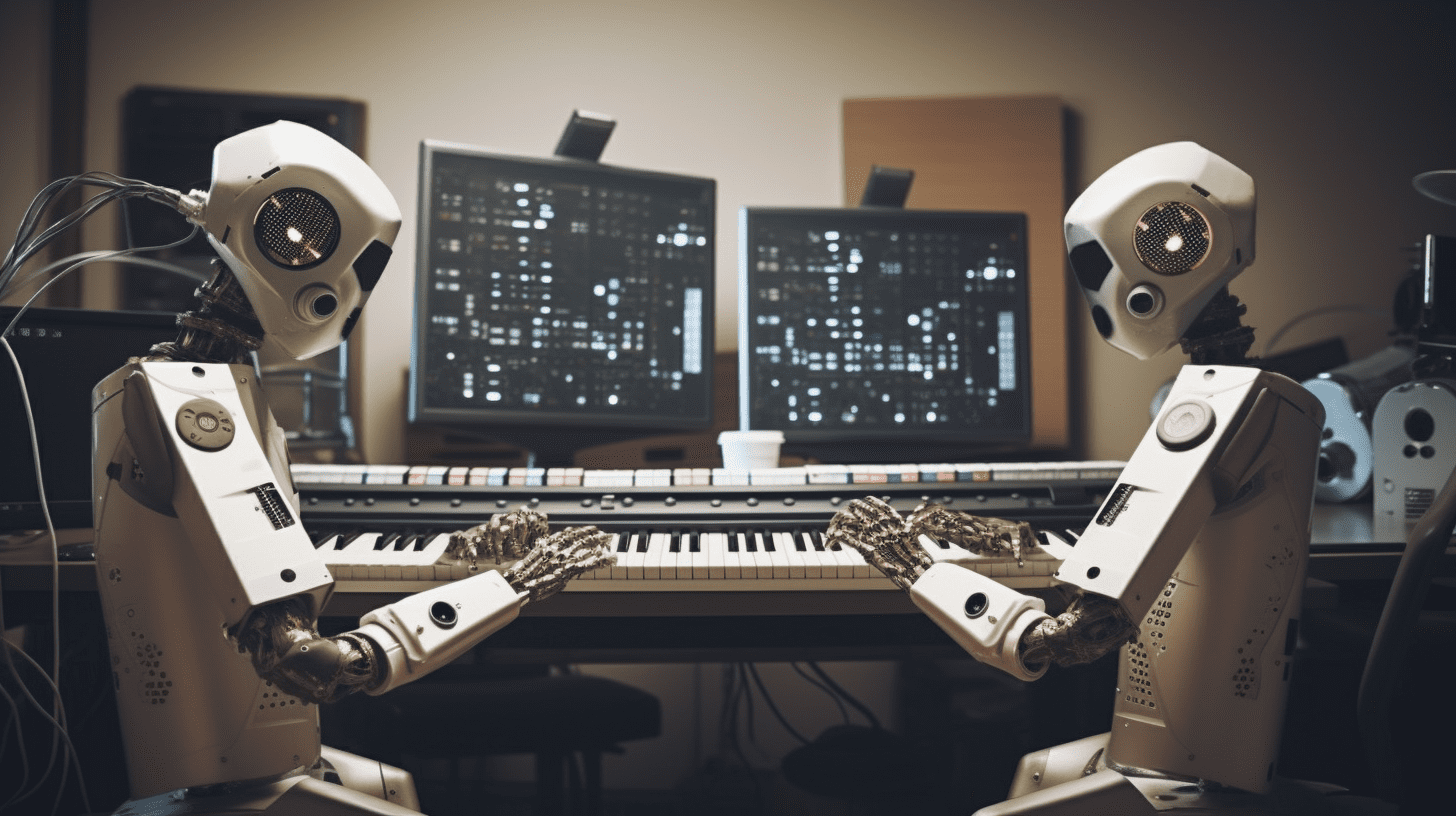
Table of Contents
- Introduction
- AI-driven Songwriting: A New Era
- Transforming the Creative Process
- Embracing Collaboration with AI
- Concerns and Ethical Considerations
- The Future of AI in Songwriting
- Conclusion
Introduction
The landscape of music production is evolving at an unprecedented pace, with artificial intelligence (AI) revolutionizing how songwriters approach their craft.
From generating catchy melodies to producing intricate harmonies, AI tools are opening up new creative avenues that were once unimaginable.
In this article, we'll explore the remarkable impact of AI on songwriting, the transformation of the creative process, and the ethical considerations surrounding AI-generated music.
AI-driven Songwriting: A New Era
The advent of AI-driven songwriting has ushered in a new era of music production.
AI algorithms, such as OpenAI's MuseNet and Google's Magenta, leverage deep learning techniques to create original compositions that rival human-made music.
By analyzing large datasets of songs across various genres, these AI models can generate melodies, harmonies, and rhythms that cater to diverse tastes and preferences.
Transforming the Creative Process
AI is not only redefining the mechanics of songwriting but also transforming the creative process itself.
Here are some ways AI is reshaping music composition:
Breaking Creative Blocks
AI tools can help songwriters overcome writer's block by suggesting fresh ideas, melodies, and chord progressions, which they can use as a starting point or inspiration for their compositions.
Enhancing Collaboration
AI platforms can serve as virtual collaborators, offering unique perspectives and ideas that can enrich a songwriter's creative output.
Expanding Musical Horizons
With AI's ability to analyze vast amounts of data, songwriters can access new styles, genres, and techniques, leading to more diverse and innovative music.
Embracing Collaboration with AI
By treating AI as a collaborative partner, songwriters can unlock their full creative potential.
AI-driven platforms can help musicians explore unfamiliar territories, push their boundaries, and ultimately create more engaging and original music.
Embracing the power of AI paves the way for a symbiotic relationship that elevates the artistic expression of songwriters.
Concerns and Ethical Considerations
Despite its potential to transform the music industry, AI's integration into songwriting raises several concerns and ethical questions, such as:
Authenticity and Originality
As AI-generated music becomes more prevalent, discerning the line between human creativity and machine-generated compositions may become increasingly difficult.
Copyright and Intellectual Property
Determining the ownership of AI-generated music poses legal challenges, particularly in cases where AI and human creators collaborate.
Loss of Human Touch
As AI-driven music becomes more sophisticated, there is a risk of losing the emotional connection that is often associated with human-made music.
The Future of AI in Songwriting
The influence of AI on songwriting is only set to grow as technology continues to advance.
Some possible developments in the near future include:
Personalized Music
AI algorithms may be able to create tailor-made music for individual listeners, taking into account their unique tastes, moods, and preferences.
Real-time Music Generation
AI could enable the creation of music in real-time during live performances, offering an unparalleled level of spontaneity and interaction with audiences.
Augmented Reality and Virtual Reality
AI-generated music could play a crucial role in enhancing immersive experiences in augmented reality (AR) and virtual reality (VR) applications.
Conclusion
The integration of artificial intelligence in songwriting is profoundly impacting the music industry, unleashing new creative possibilities for musicians and listeners alike.
By embracing collaboration with AI, songwriters can push the boundaries of their art and produce innovative music that resonates with diverse audiences.
However, it is crucial to address the ethical concerns that arise from the fusion of AI and music, ensuring that the human touch and emotional connection in music are not lost in this rapidly evolving landscape.

Leave a Reply